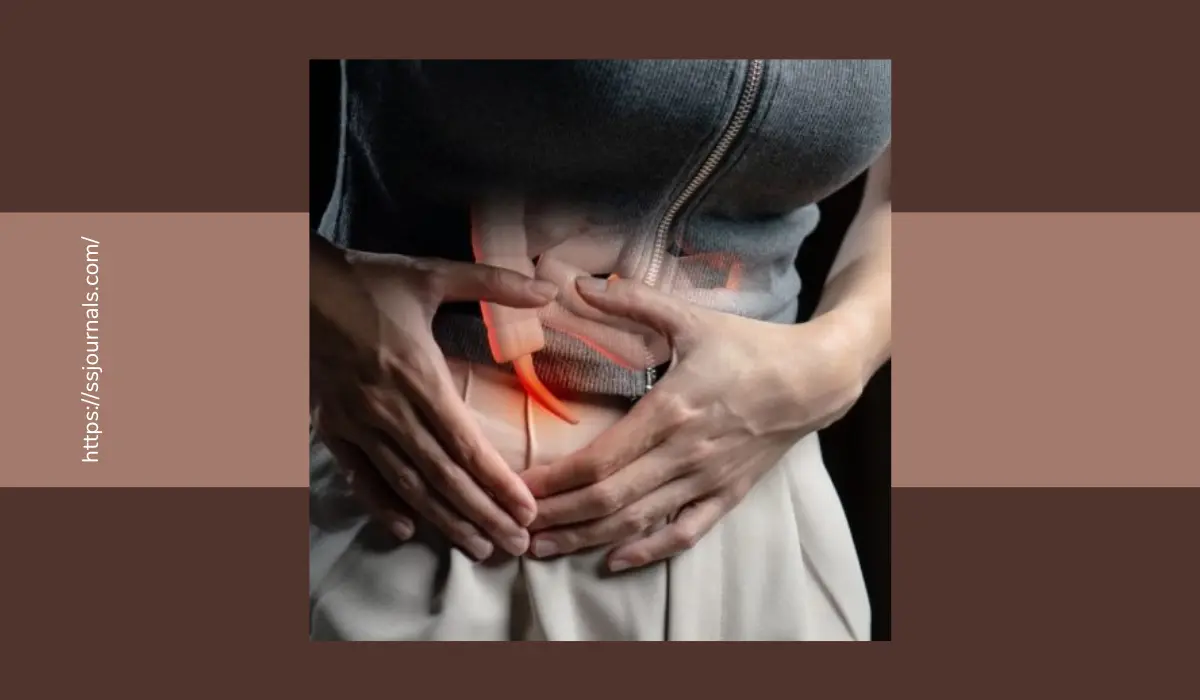Appendicitis refers to the swelling of the appendix, a small pouch attached to the large intestine. When inflamed, the appendix can rupture with potentially serious complications.
Acute appendicitis is the most common form of appendicitis and a medical emergency requiring fast intervention. Recognizing the symptoms of acute appendicitis early is key to preventing rupture and guiding appropriate treatment.
What Is Acute Appendicitis?

Acute appendicitis occurs when the appendix suddenly becomes inflamed and filled with pus. Experts are not entirely sure why this happens, but obstruction and infection are possible causes.
With no way for the pus to escape the swollen appendix, it enlarges and pressure builds up inside. This causes the tissue to swell and become painful. If untreated, the appendix can rupture.
Acute appendicitis usually comes on quickly and tends to get worse over the course of 12-24 hours if the appendix is not removed. It requires surgery to correct. Symptoms include:
Signs And Symptoms Of Acute Appendicitis
- Pain starting around the navel that migrates to the lower right abdomen
- Sharp pain when pressing on the abdomen over the appendix
- Pain that worsens with coughing, walking, or other jarring movements
- Loss of appetite
- Nausea and vomiting, perhaps vomiting once or twice
- Constipation or inability to pass gas
- Abdominal bloating
- Fever of 99-100 Fahrenheit
- Fatigue and muscle aches
As acute appendicitis progresses, symptoms tend to become more severe and persistent. Pain often centers on the right side of the lower abdomen. Those experiencing appendicitis may be unable to walk, have high fevers, and be in obvious distress. Elderly patients may have milder or atypical symptoms.
What Causes Acute Appendicitis?
Doctors do not always know what causes the appendix to become blocked and inflamed, but contributing factors include:
Infection – bacteria like E. coli gain access to the appendix and multiply inside it, causing inflammation.
Hardened stool – small bits of hard stool can clog the appendix’s opening, causing a backup of mucus.
Inflammation – diseases causing widespread inflammation, like Crohn’s disease, may affect the appendix.
Obstruction – growths, abdominal adhesions from past surgery, or trauma can block off the appendix.
Injury – appendicitis occasionally follows abdominal surgery or injury.
How Is Acute Appendicitis Diagnosed?
If acute appendicitis is suspected based on symptoms, imaging tests are done to confirm the diagnosis. Ultrasound and CT scans can show an enlarged, inflamed appendix.
Treatment involves surgical removal of the appendix (appendectomy) as soon as possible to avoid rupture and complications. This is usually done laparoscopically and most people recover well.
Antibiotics are given before surgery to prevent infection. Pain relievers help with discomfort. Surgery also confirms the diagnosis by examining the removed infected appendix.
Is Surgery Necessary For Acute Appendicitis?
Appendectomy is the standard and nearly universal treatment for acute appendicitis. Surgery removes the inflamed appendix before it can rupture, which is a potentially life-threatening emergency.
Trying to treat acute appendicitis without surgery could allow the appendix to burst and develop complications like abscesses or peritonitis. Appendicitis will not improve on its own.
In rare cases, surgery may be delayed if the appendix has already ruptured, abscesses are present, or the patient is not healthy enough for the operation. Antibiotics and drainage of infection would be tried first. However, appendectomy will still be needed eventually in nearly all circumstances.
Bottom Line
Acute appendicitis causes classic symptoms like abdominal pain that starts around the navel and shifts lower, nausea, vomiting, and fever. However symptoms can vary, so imaging tests are used to confirm the diagnosis when appendicitis is suspected.
Appendectomy is urgently needed to remove the diseased appendix before rupture can occur. Catching appendicitis early and promptly seeing a doctor improves outcomes. If you develop abdominal pain that persists or worsens, seeks medical attention even if it seems mild.

